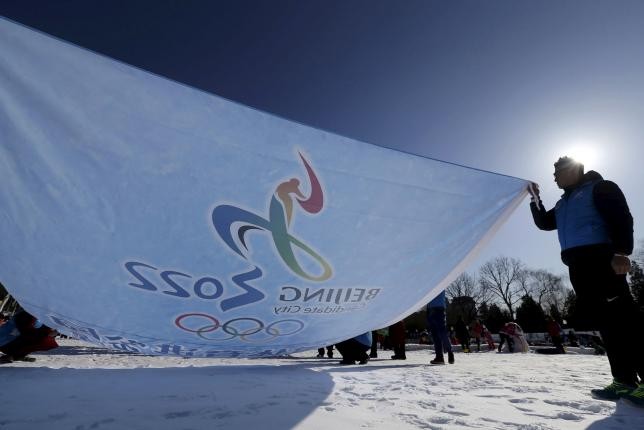Analysts have agreed that Beijing's hosting of the 2022 Winter Olympics will be pivotal in pushing economic reforms, as well as in attracting more investment opportunities and in curbing air pollution.
According to the International Olympic Committee (IOC), Beijing and co-bidder Zhangjiakou grabbed the rights because of their plan's "focus on sustainability, legacy and transparency."
In a research note forwarded to the Global Times, Minsheng Securities-affiliated economist Guan Qingyou said that "local authorities will open up more sectors to private investment to boost development," citing the speeding up of construction of Olympic venues.
The upcoming Games, which gave Beijing the title to be the first city to host both its summer and winter editions, is also expected to help boost the transportation services in the Beijing-Tianjin-Hebei region.
In a state-run Xinhua News Agency report on Friday, the Beijing-Zhangjiakou high-speed railway, which is part of the Beijing-Tianjin-Hebei integration plan, will be finished by early 2019.
Moreover, the Zhangjiakou airport is also eyed to be expanded to have a 200,000-passenger capacity every year.
In the tourism aspect, FangTang Think Tank regional strategy research center director Zhang Wuming noted that the winter sports industry development scheme will help boost Zhangjiakou's status as a destination. The plan involves transport system upgrade and improvement on facilities like restaurants and hotels.
The city's local authorities have also commenced a 6.8-billion-yuan project, developing an industrial park located at Zhangjiakou's high-tech development zone. This is apart from the ski area being completed in Chongli County.
"By working with foreign sponsors and organizations, people will realize that the Chinese government is trying to improve its level of transparency and efficiency," Zhang remarked.
Meanwhile, the Games are also regarded as a platform the government can use to curb air pollution, as claimed by experts.
Basing on 2015 data, analysts believe that the country can reach its goal of decreasing key air pollutants by 30 percent from their 2010 figure.
"2015 data shows that it is possible to reach the goal in advance since we have to fulfill our promise on air quality for the 2022 Winter Olympic Games. Authorities need to better enforce the new environmental laws, close or renovate polluting enterprises and develop renewable sources of energy," Yang Fuqiang of the Natural Resources Defense Council stated.



























